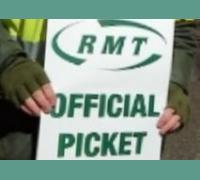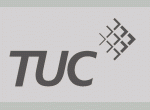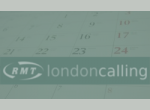Similar topics:
Attached documents
- For many workers, the 1/3 March strike will be their first time going on strike. We’ve produced this handy guide to answer some frequently-asked questions, starting with the most basic...
What is a strike?
A strike is when workers withdraw our labour - stop working - in order to defend or improve our jobs and conditions. Strikes remind employers that it’s workers’ labour that makes society move, by producing all goods and services. In our case, we’re collectively “producing” Tube journeys for the travelling public, and in doing so, we facilitate the creation of huge amounts of revenue for other employers, by getting their workers to and from work. Withdrawal of labour is the most basic form of direct action available to workers when we want to make change, or prevent detrimental changes imposed by our employers.
Why is RMT striking on 1 and 3 March?
RMT sought three assurances from LU: that it will not cut staffing levels; that it will not make detrimental changes to our terms and conditions; that it will not make detrimental changes to our pension arrangements. LU refused to give those assurances. Instead, it has announced plans to cut up to 600 jobs from stations and impose new frameworks on the revenue department and the SRT. Although it claims the ongoing review into pensions is “just a review”, it is almost inevitable that review will recommend changes to the scheme which will detrimentally impact our
pensions. We are striking to demand that management change course. We are striking to defend jobs, conditions, and pensions.
Who decided we’d strike?
We did. RMT reps told our National Executive Committee we wanted a strike ballot, a collective vote where members say if they’re prepared to strike. That vote took place via post from 13 December to 10 January. 95% of those who voted said they wanted to take action. Discussions were subsequently held in RMT branches, at the RMT London Transport Regional
Council, and in a regional reps’ meeting on 1 February.
These discussions gave a steer to the NEC, which called the strike. Decisions about future action, including if and when we strike again, will also be based on collective discussion within RMT.
This isn’t “the union”, conceived of as an external body, making a decision and “telling us” to strike. We are the union: in calling the strikes, the NEC is acting on the collective democratic decision of the membership, expressed through our strike ballot.
Continuing reading the attached newsletter for information on:
- Who can strike
- Do I have to tell anyone I’m striking?
- What should I do on the strike days?
- What is a picket line?
- What about other industrial action?
- .....ands much more.
- 2576 reads






